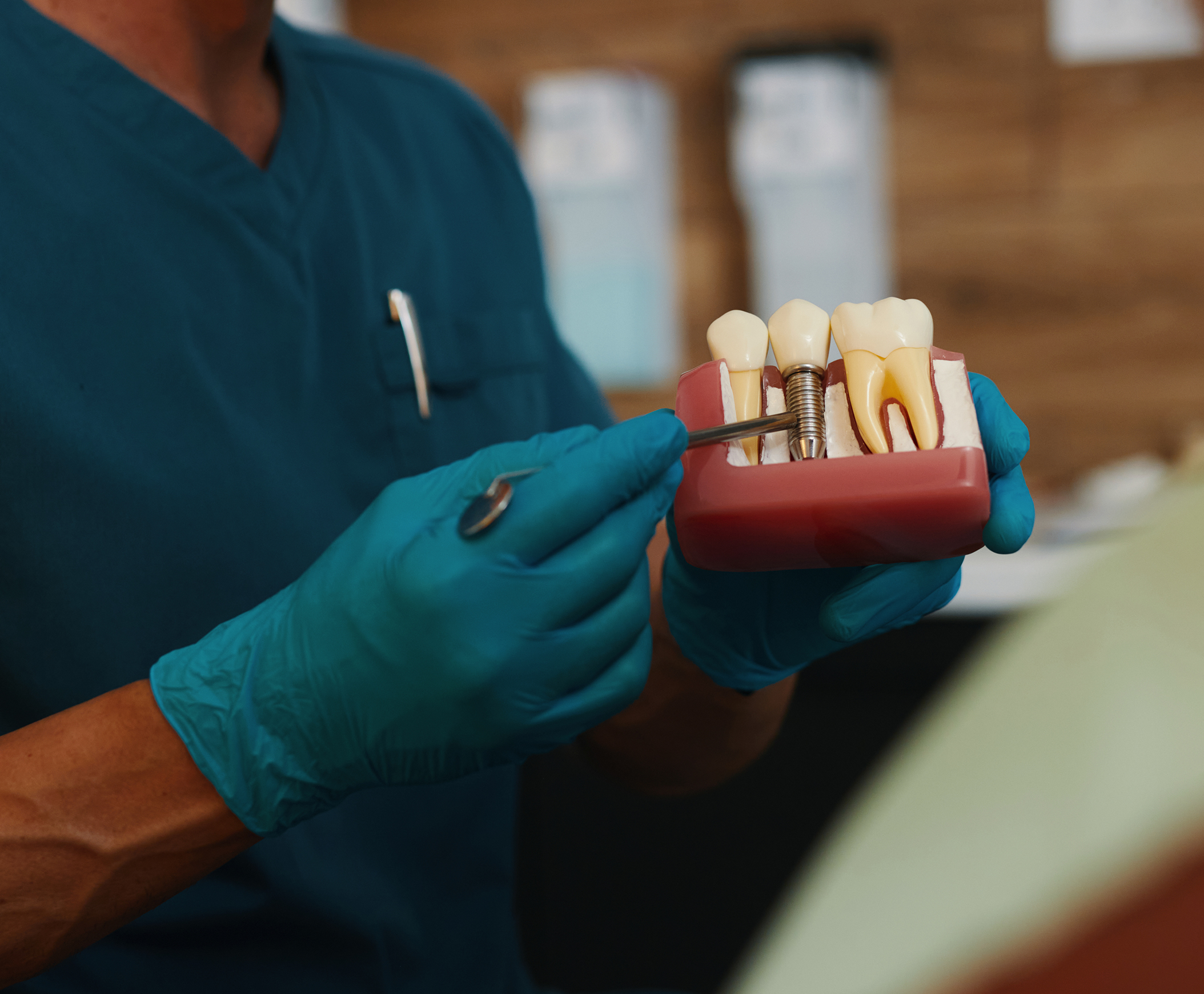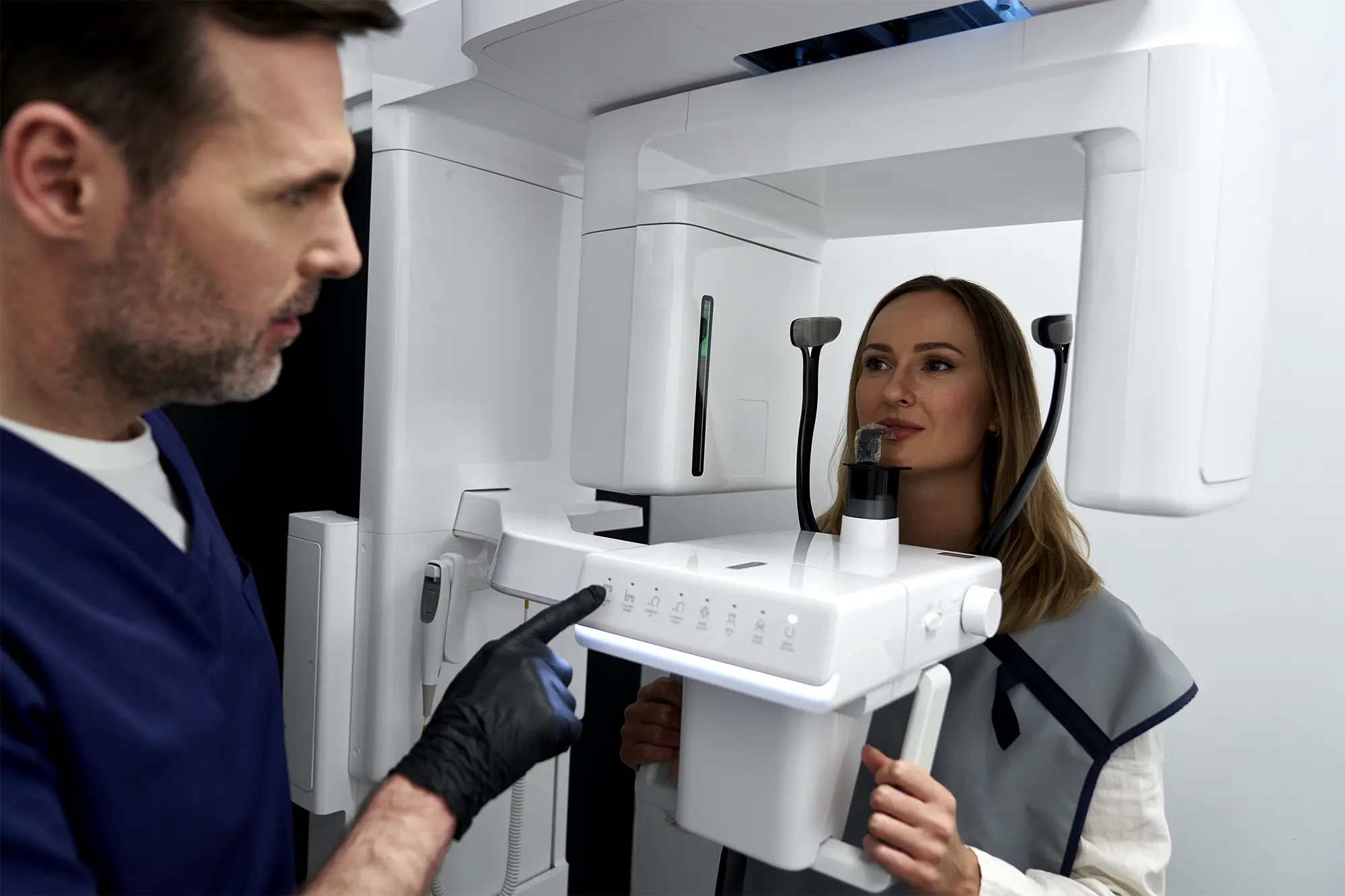Here at Precision Dentistry and Implants, we have many potential treatment options that can be used to restore your missing teeth. Because we want the best results for each patient, we believe that each patient should know the pros and cons associated with all of their different treatment options. At our office, dentures and bridges used to be the most commonly requested treatments for missing teeth. However, many patients became aware of the shortcomings of these treatments, and wanted to find a better treatment that could provide more comfort and stability to their smile. The treatment they found was dental implants. We invite you to read on to learn more about how dental implants compare to both dentures and dental bridges.

Dental Implants Compared to Removable Dentures
Dentures were long considered the most popular treatment for missing teeth. The reason for this was the fact that dentures could be made quickly and were inexpensive. Dentures were also successful at allowing patients to eat, speak, and smile once again. Unfortunately, dentures also have a reputation for becoming worn out, which can result in them providing replacement teeth that are uncomfortable and less reliable. After some years of having their treatment in place, many patients also complain about their dentures beginning to make it harder to chew and speak properly.
One big difference between dentures and other tooth restoration treatments is the fact that dentures sit on top of your gums instead of being directly connected to the structures of your mouth. In order to stay in place, many dentures users are forced to purchase messy adhesives that they must use on a daily basis. Unfortunately, even with this adhesive, many patients still complain about their dentures falling out of place. Dentures are also unable to provide adequate stimulation to the jawbone, which will result in jawbone deterioration.
Dental implants, on the other hand, are directly fused to your jawbone thanks to a process called osseointegration. Thanks to this process, your implants should never need to be removed, nor should they ever fall out of place. Because of this fusion of implant and jawbone, dental implants are also able to properly stimulate your jawbone, ensuring that your jawbone does not deteriorate.

Dental Implants Compared to Dental Bridges
Another popular way of restoring missing teeth is the dental bridge. A dental bridge is a structure made out of (usually) three crowns that have been fused together. The middle crown takes the place of your missing tooth while the two surrounding crowns are capped over the teeth adjacent to the missing tooth. In order for these side crowns to fit, the natural teeth that will be covered must be filed down. Unfortunately, by filing down these teeth, a lot of the enamel protecting them is removed, which can leave these teeth defenseless against conditions like tooth decay. It is also possible for food debris to get caught underneath your bridge, where it will sit against your gums and potentially lead to gum disease. Unlike other tooth replacement treatments, dental bridges are also only meant to last about 10 years or so before they will need to be replaced.
Unlike dental bridges, dental implants do not require any modification to your remaining teeth. Your implant will be placed in the gap left behind by your missing tooth. Thanks to the fusion of your implant fixture and jawbone, your dental implant will function and feel just like a natural tooth would. This also means that your implant will protect your mouth from oral disease just like one of your natural teeth would. And, with the proper care and maintenance, your dental implant can end up lasting you the rest of your lifetime.
Schedule an appointment
Our Technology
Ready to help with all
dental care needs
Dr. Huff only uses the best when it comes to in-office technology at Precision Dentistry & Implants. We value your comfort and your time above all else. New advances in dental technology allow us to treat you with expert precision in a comfortable and timely manner.

